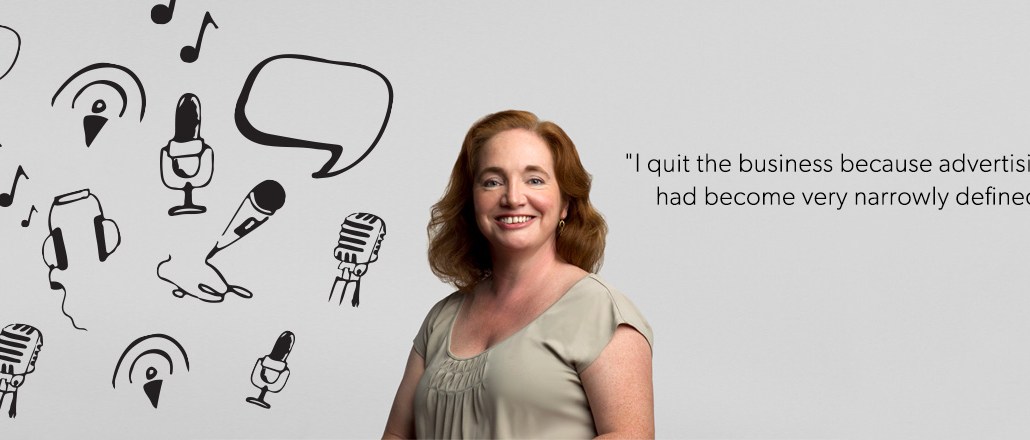Secure your place at the Digiday Media Buying Summit in Nashville, March 2-4
Co’s Rosemarie Ryan on why the agency of the future isn’t about advertising

It’s a strange time to be an ad agency — which might explain why more agencies are so reluctant to call themselves as such. Shrinking margins and client propensity to “let’s just do it ourselves” may mean the rise of a new type of shop.
Rosemarie Ryan, co-CEO and co-founder of Co:Collective, certainly hopes so. The former J. Walter Thompson CEO says she “quit advertising” five years ago. She talked about agency pitches, the role of a 100-year-old shop today, and the trials and tribulations of being an entrepreneur in this week’s Digiday podcast.
Edited highlights:
Scarcity meets abundance.
“There’s a lot of change happening in the business world. The channels in which you reach people are now abundant. So there’s no scarcity in the market any more. And the things that used to be abundant like money and the way to find an audience are now scarce. So clients are in a Catch 22. They have less money and less time to build bigger and better connections. And a million agencies to choose from. And new platforms that are behaving like agencies. And publishers who are also trying to get into that business. BuzzFeed has its own. New York Times has its own.”
What agencies get wrong is they focus on the advertising.
“I quit the business because advertising had become very narrowly defined. It had become about placing advertising on platforms and broadcasting. But brands and businesses don’t get built that way any more. Products, services and content is how people experience it. If I’m a client I wouldn’t be worried so much about the medium. You need to understand what type of experience you want to build. When I first went to JWT looking back in the archives and looking for some inspiration from the past, way back when, JWT created the grilled cheese sandwich, it wasn’t an ad idea but a business idea for Kraft. They also created the idea of having a second car.”
The ad business is so commoditized, it makes no sense.
“Because agencies pitch business they give away strategy. They give it away. They give away their best thinking. Clients shouldn’t be shopping for ideas, they should be shopping for great minds and great thinking. I’d look for diversity in thinking. People from different types of backgrounds thinking about. I wouldn’t pitch if I was an agency. We don’t. The business has become hugely commoditized. I know there’s amazing talent at agencies but it’s become so commoditized I don’t know if clients are getting or seeing that talent. “
Becoming an entrepreneur is hard.
“The place you spend money is where you don’t expect or enjoy like real estate. Then there are the things like what phone system should I buy. The kind of thing I had never thought about. And I had no desire to know about it. But the thing I found is that people really come to your aid. We didn’t take any investor money to start with. So Ty and I put our own money in. We’re not going out to fancy dinners twice a week any more.”
Image by Matt Fraher
More in Marketing

Future of Marketing Briefing: AI’s branding problem is why marketers keep it off the label
The reputational downside is clearer than the branding upside, which makes discretion the safer strategy.

While holdcos build ‘death stars of content,’ indie creative agencies take alternative routes
Indie agencies and the holding company sector were once bound together. The Super Bowl and WPP’s latest remodeling plans show they’re heading in different directions.

How Boll & Branch leverages AI for operational and creative tasks
Boll & Branch first and foremost uses AI to manage workflows across teams.





